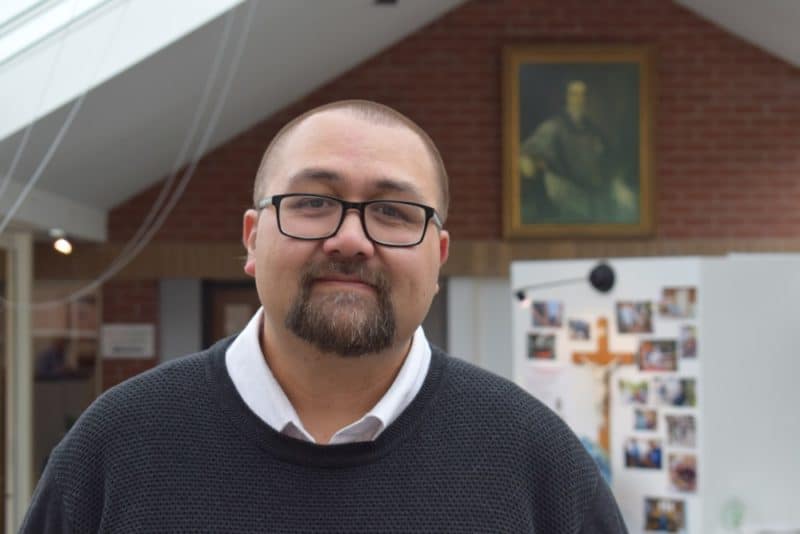Listening and walking with people are key to newly-appointed Auckland diocese Vicar for Māori Manuel Beazley’s plan to be of service to Māori Catholics.
Mr Beazley, who is finishing off his commitment as pastoral assistant at St
John the Evangelist parish, Otara, said he has worked in various ministries in the Church for the past 20 years.
“My approach to ministry is I’ll serve wherever there is a need. And there certainly is a need amongst Māori people,” he told NZ Catholic.
Mr Beazley hails from Hokianga in Te Taitokerau. His hapū are Ngāi Tupoto, Te Rarawa iwi from Motukaraka and Ngāti Kaharau, Ngāti Hau, Ngāpuhi iwi from Ōmanaia.
Having established his links, though, Mr Beazley is reluctant to be considered a “guru for all things Māori”.
“It really has to be an approach of walking with people. We have a saying
in Māori . . . naku te rourou nau te rourou ka ora ai te iwi . . . with what I bring and with what you bring, everyone gets fed. But essentially, it means — with everyone working together, we’d be able to achieve things. That’s really the approach I want to take as Vicar for Māori,” he said.
Mr Beazley said there had been a decline in Māori participation in the Church over the past years.
Fortunately, the late Pa Henare Tate left a huge legacy, the Māori Pastoral Care plan, which Mr Beazley plans to reinvigorate and re-activate, update and implement parts that are applicable to the 21st century Church.
Mr Beazley would like to use that as a road map for Māori looking towards 2040, the bicentennial of the Treaty of Waitangi. He said an important issue for Māori would be the Church’s bicultural commitment “and that Māori have a unique place in Aotearoa and that means also having a unique place in the Church”.
“The priority for me would be to enable and empower Māori Catholics to claim their rightful place in the Church . . . not to feel as if they were, I suppose, visitors or strangers . . . but they are fully a part of God’s household,” he said.
Mr Beazley stressed Te Tiriti o Waitangi is not race-based.
“In Te Tiriti o Waitangi, the bicultural relationship we speak of is actually between Māori and the Crown. The Crown represents other people who are here in Aotearoa New Zealand, regardless of what race and culture that they are,” he explained. “Our bicultural commitment, therefore, isn’t about race, it’s about relationships. It’s for the Church and Māori to renew its relationship with each other.”
Mr Beazley noted that a lot of things have been done for Māori by people who weren’t Māori.
“They were very faithful to Māori people and are committed to kaupapa Māori ideals, but they weren’t Māori. This is not meant as a criticism, because there are many who have done wonderful things and are still doing wonderful things for our people, but [this ministry] must have a ‘by Māori for Māori approach’,” he said.
“Non-Māori who are committed to kaupapa Māori are welcome to walk alongside us, but we need to do this for ourselves, rather than expect someone else to do it for us. If we want to have a full and active role in the Church, we have to make that happen,” he added. “We have to exercise our mana to have full and active participation in the Church.”

Reader Interactions